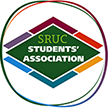Speak Week: Covid-19 Report
Collecting evidence
We know that lockdown has had a profound effect on everyone’s lives, and the rapid switch to online teaching posed big challenges to both staff and students. At SRUCSA, we have been in regular contact with students throughout lockdown, particularly the Class Rep network. When the Academic Leadership Team approached us to generate some evidence of the effect on the student experience Speak Week: COVID-19 Edition was born.
We carried out an online survey of students to investigate their experiences of learning in lockdown. We used a platform called Mentimeter to create a survey with a clean, attractive look. 273 students participated, which represents a higher level of engagement than any previous online survey we’ve carried out, and is on a par with our in-person Speak Week events. The survey asked three questions:
- Q1.What have you missed during lockdown?
- Q2.What has positively influenced your learning during this time?
- Q3.If you were in charge of your course, what would you have changed?
The functionality of Mentimeter allowed us to produce a word cloud from Q1 immediately, which we shared with students through Teams groups and the student newsletter. It was a quick way to help us close the feedback loop before finishing up analysis, and made the usual ‘thank you for participating’ message more visually impactful.
Positive influences
The responses to questions 2 and 3 were then coded and analysed. The main findings for Q2 were that staff (26.9%) and online learning (19.2%) had a positive influence for the highest number of respondents. There were a large number of comments praising staff for their flexibility and support. Students appreciated the fact that they were able to continue their studies from home, and the range of digital tools made available to them to do so.
However, 12.1% of responses to this question stated that there were no positive influences on their learning. Some of these comments attested to the innate difficulties faced by students during this time, such as stress, difficulty studying from home (environment, family commitments and the like), and lack of motivation. Some simply stated ‘nothing’; but when cross-referenced with responses to Q3, most of these respondents would have changed either communications or assessment requirements.
Changes students want to see
The main findings for Q3 were that respondents would have changed aspects of online learning (21.5% coverage). Largely, these comments indicated a lack of consistency in the use of online platforms (Big Blue Button, Moodle, and MS Teams). Students also called for more interactive content and a better mix of content types.
Adjustments to requirements such as coursework and exams was an important area for students, with 17.9% saying they would change something in this area. The comments largely reflected the desire for extended deadlines, reduced workloads, and changes to assessment formats. Importantly, a number of comments within this theme also indicated that some students did not fully understand the changes to assessment requirements, particularly exam alternatives. This also links into the next most important finding, communication.
17% of students said they would have changed communications in some way. A wide number of points were raised such as more rapid communication at the beginning of lockdown, more information on expectations for coursework and alternative assessments, improved clarity and easier to understand messaging across the piece. This echoed what we’ve heard from Class Reps over this time.
It is also worth noting that 16.5% stated that they would not have changed anything, with many comments received such as:
“Nothing, the tutors stepped up to the plate and supported the students.”
“I honestly think the lecturers and other staff at SRUC made the appropriate changes and I wouldn’t have done things any differently.”
SRUCSA’s recommendations
On reflecting on these findings, SRUCSA proposes the following recommendations:
1. As COVID will have a continued impact over the next academic year, a revised version of “Help not Hinder” should be implemented. Despite all the work currently underway to improve the online learning experience, some students will still be faced with a disadvantage due to circumstances outwith their control (sickness, uncertainty around childcare or work, mental wellbeing etc.). Compared to current policies for extenuating circumstances, the new policy could allow for more flexible attendance or assessment submission. Such a policy could also have a degree of flexibility and scenario planning built-in, allowing SRUC to respond rapidly to changes. New policies that reflect the shifting difficulties felt by students as the country leaves lockdown are being advocated for by a number of Scottish Student’s Associations, as well as NUS Scotland; and SRUCSA Officers will be happy to discuss further what this could look like for SRUC.
2. Improving communications and monitoring for gaps is essential. The feedback shows that some students were happy with levels of communication, but that there were still failings somewhere along the chain. The ‘cascade’ system of communications through departments and programme teams is an important complement to central communications, such as the weekly newsletter. Where there are cohort-specific communications, delivering these ‘live’ during lecture/tutorial time as well as asynchronously (Moodle, email) may help cover all students.
3. Ensuring regular ‘check-ins’ with students will be an important part of the blended learning mode of study, preferably weekly. Students who are in a more vulnerable situation should be prioritised for ‘live’ calls.
4. Provide consistency in use of online platforms across all programmes.
5. A process must be put in place to quickly identify students who require assistance (e.g. laptops, dongle) during induction/matriculation.
6. Once students return to campuses, continuing the recording of in-person lectures will improve accessibility for students.
Full analysis and more detail on our recommendations can be found in the full report, which will be shared more widely soon. Many thanks to Toni Dismore for providing qualitative analysis, which allowed us to significantly compress the timescale of production for this report.
